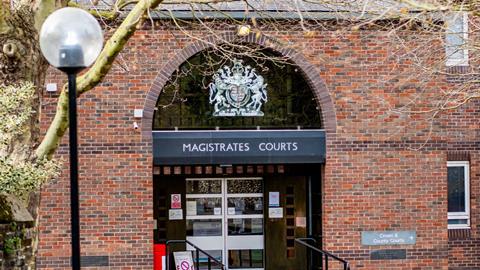A £1m campaign to recruit 4,000 magistrates has attracted 34,524 expressions of interest, the government has revealed.
The Ministry of Justice announced in January that it wanted to boost magistracy numbers to help tackle the court backlog and attract people from a wide range of backgrounds. There are currently 13,177 magistrates in England and Wales. The campaign included an advertisement designed to encourage listeners across Capital Xtra, Radio X, Heart and LBC in which radio presenters Remel London and Will Njobvu try to figure out who the real magistrate is among a group of six everyday people.
Responding to a written parliamentary question from shadow courts minister Alex Cunningham this week, justice minister James Cartlidge said 33,580 people have expressed interest so far as a result of the campaign. The Ministry of Justice has since confirmed to the Gazette that the latest figure is 34,524.
A quarter of interested individuals are black, Asian or minority ethnic. Of the 93% expressions of interest that provided full demographic data, 24% are under 40.
The Gazette was told those who registered their interest will be contacted once applications open in their area of interest. In the meantime, they have been encouraged to undertake the required court observations and/or research what needs to be completed prior to applying to become a magistrate. Once they have been contacted, they will need to complete an online application form. If successful, they will be invited for interview. The ministry hopes to see new magistrates appointed from this autumn.
Volunteer magistrates are required to sit at least 13 days a year. The financial loss allowance was increased by 16% starting this month. Salary employed magistrates can claim a maximum allowance of £107.97 while self-employed magistrates or magistrates with care costs receive £134.96. The expenses policy has been amended to enable people on zero-hour contracts to claim loss of earnings.
Magistrates play a crucial part of justice secretary Dominic Raab’s plans to tackle the Crown court backlog. Their sentencing powers are being doubled, which the ministry says will free up an estimated 1,700 extra days of Crown court time annually.




























7 Readers' comments